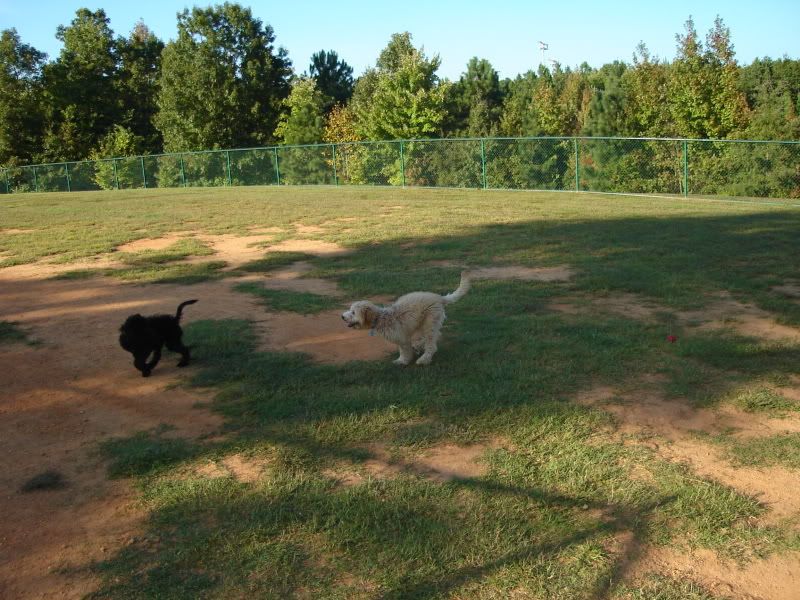
Creating the ultimate Designer dog
Is is possible to create designer dogs through DNA selective testing? With modern technology right at our finger tips...you bet your sweet DOODLE, it is!
Faster? Stronger? Keener sense of smell? More muscles? Shorter? Thicker coat? The list could go on. But is this playing God, with dogs? We have already seen animals being cloned. Genes determine who we are as humans. They also determine what the animal will become too. But, what if we could create our Own special dog? Create pets that are designed for individual families? Is this possible?
Faster? Stronger? Keener sense of smell? More muscles? Shorter? Thicker coat? The list could go on. But is this playing God, with dogs? We have already seen animals being cloned. Genes determine who we are as humans. They also determine what the animal will become too. But, what if we could create our Own special dog? Create pets that are designed for individual families? Is this possible?
Located in Ithaca, NY, the Baker Institute is a part of the College of Veterinary Medicine at Cornell University. Today, the Institute serves society through discoveries that will have both an immediate affect and long term implications. Along with their historical strength in the study of infectious disease and immunology, the Institute's medical geneticists have gained prominence in recent years through the development of practical tests for detecting carriers of defective genes and strategies for control of genetic diseases. These researchers also investigate a variety of diseases affecting both animals and humans, including osteoarthritis, diseases of the eye, and reproductive disorders. In 2006, the Baker Institute Mapped out the canine rod cone dysplasia type 2 (rcd2) to a region of dog chromosome 7. Their achievements are numerous where the canine is concerned. But who will be the first in achieving a true Designer dog? A dog that is simply created by mixing a variety of specific genes to give someone seeking such a dog, something unique...only to them? Do you think this could become a reality?
Canine geneticists have come a very long way, especially since our modern technology is getting better and better. Our environment being what it is, may be the driving force for those seeking "designer" dogs. When I think of a "designer dog"...this is essentially the reality of what comes to mind. A dog that has been put together by a canine geneticist according to my desires and wishes. Dogs created to specifics. Yes. Now we are talking about "playing God". We already have hybrid dogs that have become wildly much more popular than the purebred, which angers many purebred breeders. But, it is what it is. A new fact of life. Man's best friend, the dog, is proving that it has, yet again, figured out a way to lend a helping paw. The identification of canine genes is not only improving the health of dogs, but is also helping researchers identify genes controlling human diseases and develop treatments. Yes, as much as I hate to say it, dogs are used greatly in many experiments and tests. Some agree it is for the betterment of human kind...some disagree completely.
Dr. Dennis O'Brien, a professor of neurology at the University of Missouri's College of Veterinary Medicine and an expert on neurodegenerative diseases, says he is thrilled about the recent identification of genes that cause two types of rare epilepsy in dogs and humans. "It's very exciting. I think it shows the power of canine genomics to (be able) to start answering some of these questions," Dr. O'Brien said. Berge Minassian, MD, and other scientists at the Hospital for Sick Children in Toronto, turned to the dog in their hunt for genes that cause Lafora disease in humans. With Lafora, seizures begin in the teenage years and increase in frequency until they cause death, usually within five years after the onset of the first symptoms. The researchers had identified one gene in humans but knew there was at least a second gene, because some families couldn't be linked to the first gene. "I knew that Lafora is, relatively, frequently reported in dogs," Dr. Minassian said. "I thought perhaps if we found families of dogs (that) have this disease, it may help us find the gene and, from there, the human gene."
While dogs and cats are used for testing and experiments, they are also man's best friend. Dog and cat alike. Goldendoodles are called, by some, designer dogs but I beg to differ. Goldendoodles have not been created from test tubes or by Canine geneticists. They are selectively created by designer breeders. The dog itself is not a designer dog, but I do consider the breeder who only creates hybrids, a designer breeder. That's not a bad thing. I myself am a "designer" breeder.
Sometime in our future, REAL designer dogs will occur. We will be able to select and design our family pets in a very real specific way. As time goes by and scientists collect more and more DNA of family pets and varying breeds, they will soon have an entire collection to choose from. They can mix and match and perhaps, you'll even be able to check off a list what it is you desire in your own personal, designer dog. ALready breeders can know before their litters are born, what colors to expect through DNA testing. Canine DNA holds more keys than we realize, to knowing what to expect with offspring. Mark my words! Canine DNA is going to go to places they've never known before!
*AUTHOR/BREEDER: Dee Gerrish of Goldendoodle World. http://www.goldendoodleworld.com/



No comments:
Post a Comment
All comments must be approved by the moderator before being posted.
Note: Only a member of this blog may post a comment.